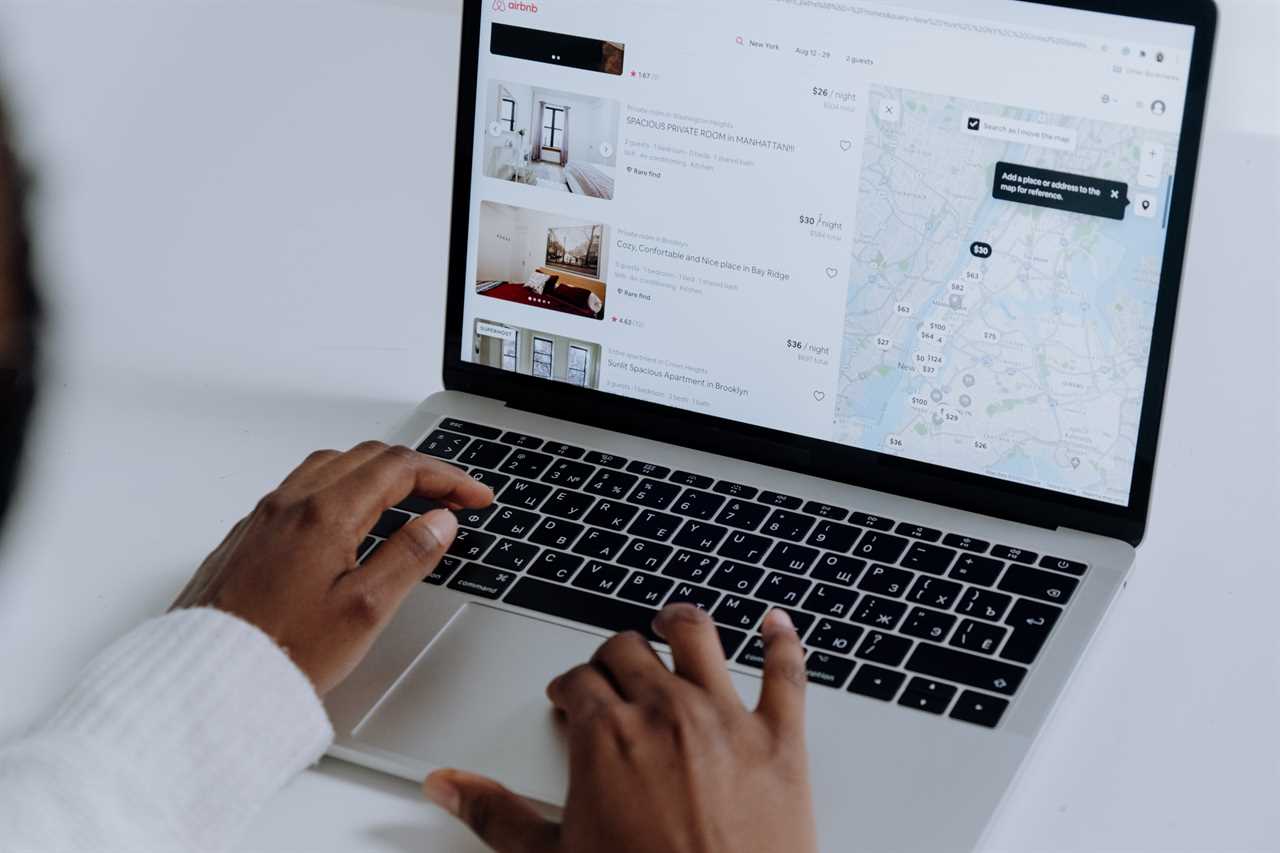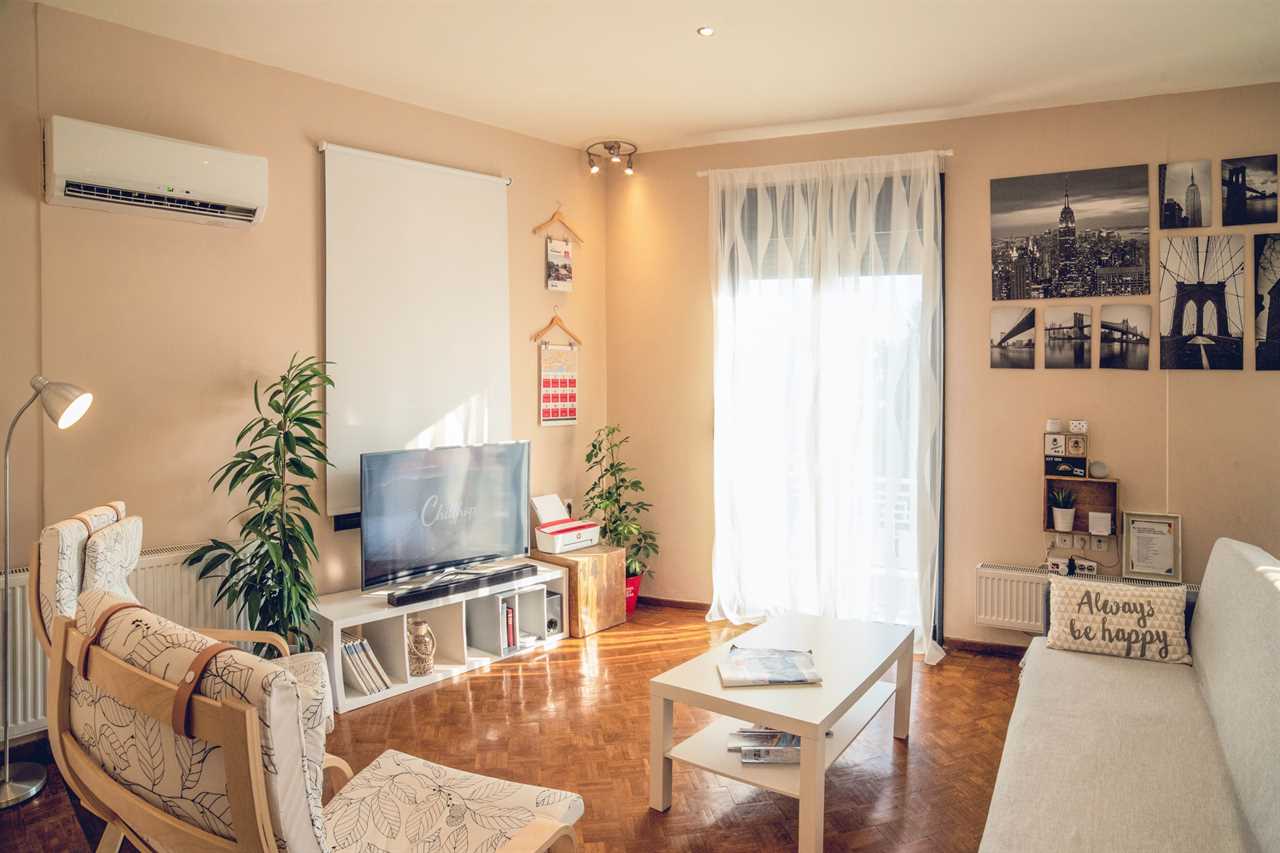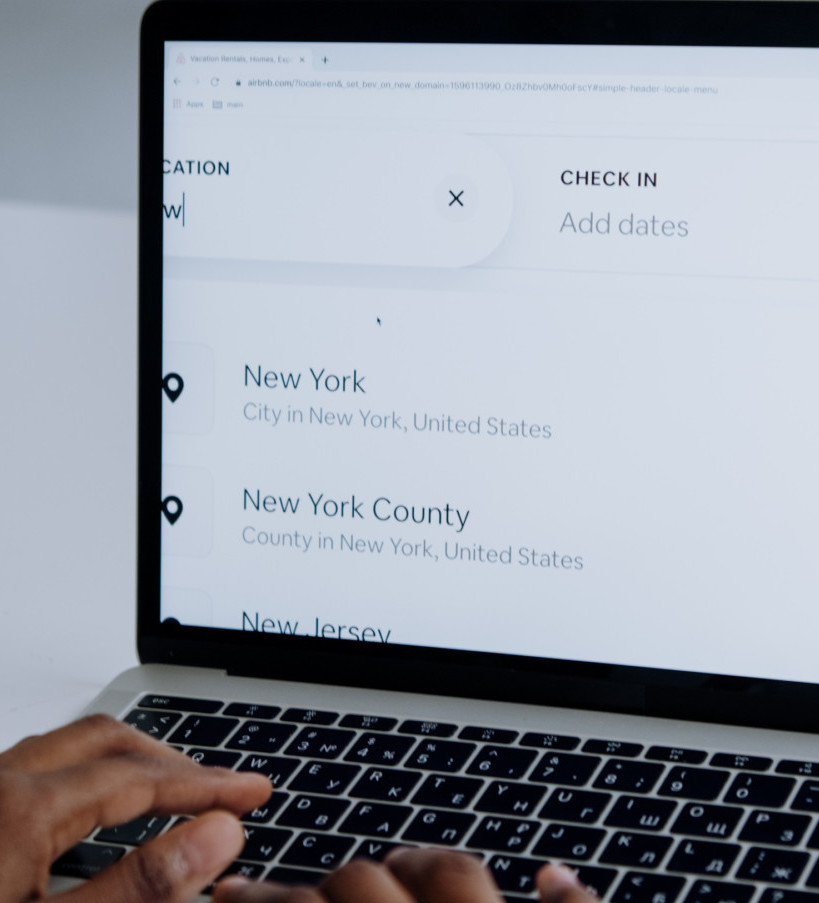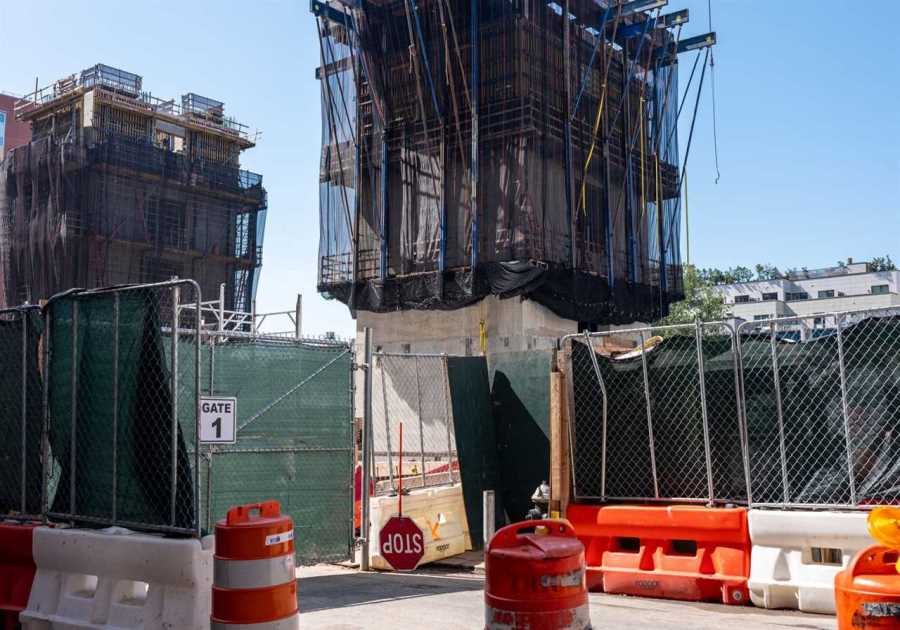Offering your apartment (or a room in your apartment) as a short-term rental on a platform like Airbnb or VRBO could be a great way to make some extra cash. While most people assume they have to own property before building an Airbnb business, you can actually become a host while renting, at least in some situations. This is what’s known as rental arbitrage.
Rental arbitrage, in short, means you rent an apartment, condo, apartment, single-family home, or even a room from a landlord, then list it on sites like Airbnb and VRBO, among others, and collect the difference.
There are three key things to understand in making rental arbitrage work for you.
- You need to know whether your lease allows short-term rentals (STRs), or at least whether it does not explicitly prohibit them
- You need to understand all local regulations that apply to STRs, and
- You need to get your landlord on board

What are Airbnb, VRBO, and other similar sites?
Sites like Airbnb and VRBO are online platforms that provide an alternative to hotels and motels for travelers seeking accommodations. These sites list houses, apartments, condos, and even individual rooms for rent for any number of days..
They essentially provide the listing platform for hosts to market their rental and then charge the property host various fees for bookings made through their platform. As a host, you have control and flexibility over who rents your space and what amenities you include.
Renting out your apartment as a short-term rental can be a great way to meet new people and generate some extra cash so you can possibly travel more yourself. Many guests seek out the Airbnb-type experience because it can be more convenient and personal than conventional hotels and motels.
If your lease allows you to rent your apartment as a short-term rental through sites like Airbnb, you’ll need to make preparations and consider factors like security, parking, and other tenancy terms.
What is Airbnb rental arbitrage?
Airbnb rental arbitrage is a way to rent out your apartment, condo, private room, or unit from your landlord’s property. This could be your current rental, or you may consider finding a separate rental property to rent through sites like Airbnb. Because it’s a short-term situation, a day, a week, or less than a month, it is not an assignment, and may not be covered by your lease’s terms on subleases and is considered rental arbitrage. A rental arbitrage host will lease long-term rental properties and re-rent them as a short-term rental (STR). Sites like Airbnb serve a variety of hosts who list on their platforms, and within their community, rental arbitrage is widely accepted.
Here’s an example to demonstrate how rental arbitrage works
You apply as a tenant for an apartment in a great area with many amenities and nearby attractions. You complete the approval process, and the landlord accepts you as a tenant.
Then your job takes you out of town for an extended period, or you decide to travel for a few months. If your lease and local regulations allow it, you could list your apartment on sites like Airbnb as an STR available for the period you’ll be away.
Prospective guests apply through Airbnb to rent your apartment at a rate you set, sign the contract, pay their deposit, and move in – for a few days, weeks, or months. You move back in when your trip is complete. While you were gone, a guest enjoyed the use of your rental space, and you made what could be a substantial amount of extra income, and possibly more than what you pay as the apartment’s long-term tenant.
Is rental arbitrage legal?
Most major cities, townships, states, and provinces that allow STRs have laws restricting the number of STRs in any given area and defining how rental properties are used. Some cities do not allow STRs in any form.
To host on sites like Airbnb and VRBO, you will likely need to get a permit or hospitality license or submit an application to be considered an STR. If you are considering rental arbitrage, take time to understand your local zoning laws and how they are enforced to avoid fines or penalties.
You’ll also need to be sure that your landlord will allow you to use your apartment as an Airbnb. Review the lease agreement and talk to the landlord to work out an agreement, especially if a clause prohibits sublets. If your landlord agrees to allow STRs, get that permission documented as an addendum to the lease.
You’ll also want to make an agreement that protects you from damages caused by guests. Short-term rental sites like Airbnb typically offer insurance that you’ll want to take advantage of if you are allowed to arbitrage your apartment.

What are the benefits of rental arbitrage?
A rental arbitrage business model allows you to earn money from your apartment if you need to travel or leave the area without being forced to break your lease.
Other benefits of rental arbitrage:
- Little risk: Because you don’t own the property, you won’t have maintenance costs unless your renters cause damage. The landlord would take care of any required repairs or renovations.
- No out-of-pocket investment: You’re not buying the property you’re using as a short-term rental. You won’t need a down payment or money to pay for renovations. Like any tenant situation, you’ll need enough to cover your security deposit, first month’s rent, and any other deposits. You will also need funds for furniture, kitchen items, linens, and amenities you’re promising in your listing.
- Business opportunity: You could potentially lease more than one unit and use a rental management platform to manage STRs in multiple locations.
- Less management than a regular rental: Landlords are responsible for managing their property and paying all costs associated with keeping the property functioning for their tenants. This could mean a mortgage, HOA fees, utilities, taxes, insurance, maintenance, etc. When you host a short-term rental, you may only have to worry about paying your monthly rent and any other fees that sites like Airbnb charge for their listing services.
What are the disadvantages of rental arbitrage for sites like Airbnb and VRBO?
As in any business, rental arbitrage involves disadvantages you want to consider before jumping in with both feet. Because legal requirements vary across cities, townships, states, and provinces, proper due diligence – about the laws, lease regulations, and property itself – will be essential. You’ll want to inspect the property to spot repair needs and alert the landlord before they become a problem. Here are some disadvantages to rental arbitrage:
Renting costs:
- You must pay rent every month and on time.
- Failure to pay rent can lead to eviction, lawsuits, and extra fines.
Property damages:
- If a guest damages the property, you, the leaseholder, will likely be responsible for repairs.
Leaseholder agreements:
- Write detailed agreements with your landlord that protect all parties and guests.
- Documents could be costly, time-consuming, and require a lawyer’s assistance to draft the first time.
Legality and Permission:
- Educate yourself on:
- Local laws
- HOA Bylaws
- Permission from the landlord in writing
- Some cases may need permission from neighbors.

How to list a property you rent on sites like Airbnb
If you decide to move forward with rental arbitrage, keep in mind the six steps below to ensure you comply with local regulations, your lease, and your landlord’s expectations. Then turn to resources for new hosts to set up your listing and start renting.
1. Research and comply with your local laws
Because laws vary by city, you’ll want to avoid the risk of eviction, penalties, and fees by following all local laws for STRs. Here are just a couple of examples where specific laws are applied within a city:
- In NYC: STR sites like Airbnb have to share specific information about hosts and listings with the city government. You may be required to get a business license. There are also restrictions stating you can’t rent out a “Class A” multiple dwelling for fewer than 30 days.
- In LA: Hosts need written approval from the property manager, must share their data with the city, and impose limits on stays per year.
2. Review your lease or rental agreement
Be sure your STR setup complies with all the terms in your lease, or you may face the risk of eviction. If your lease does not allow you to sublet, you can discuss it with your landlord prior, and they may be willing to make arrangements to accommodate you as an STR host.
3. Get permission from your landlord
Seek explicit approval even if your lease may permit short-term accommodations. You may need to offer your landlord additional incentives to gain their approval. For example, you could pay a higher security deposit.
4. Pay all required taxes and fees
Keep track of any extra fees or taxes you incur as a host. You want to charge enough to cover any local tax, Value Added Tax (VAT) from guests, and service fees or other fees based on surcharges you may incur.
5. Create your account with a quality listing
To create an account on sites like Airbnb or VRBO, you’ll need to:
Explain the property and location: The first step in setting up an account is to select your city and whether you plan to rent out the entire unit, a shared room, or a private one. You’ll also need to set up the number of guests you can accommodate at a time. Then, click “get started.”
Create an account: Create an account and log in. Provide details about the unit or room – be specific about what your listing has to offer, such as:
- Property type
- Number of beds and bathrooms available to renters
- Physical address
- Amenities, like pool or laundry room access. Get all amenities approved by your landlord before offering them to your guests.
Be honest and accurate. A potential guest can cancel if they find out that your rental is misrepresented or demand money back if they show up and find accommodations substantially different than the listing promised.
Name your listing: Name your listing based on the spirit of the place and the area. Choose a memorable and fitting name for your listing, like “Fun & Sun in L.A.” if you’re on a beach or “Serene & Peaceful Lake View” if your rental is on a lake. This is also where you’ll upload a professional host picture of yourself.
Paint a picture: Add high-quality, bright photos of all relevant rooms (at least 1024 x 683px). Stage the rooms to look clean and attractive. This is especially important for the first three pictures you load because they’ll dominate your listing. You may want to hire a professional photographer to do this to make sure your rental puts its best foot forward.
Add short descriptions of the unit, amenities, and neighborhood attractions. For example, describe the property as a second-floor unit with an elevator overlooking the pool, within walking distance to nightlife and nearby shops. Mention high-speed internet, the patio or balcony, and nearby landmarks to give guests an idea of what to expect. You can also explain when you’ll be available and what they expect from you.
Choose the booking settings: Set up guest requirements that you or your landlord have agreed upon. Sites like Airbnb have standard guest requirements that include identification requirements and house rules. You can also share information about where to park and how to access the property.
Create the booking calendar: You can set up select dates when the property is available or leave the calendar wide open. Many hosts block periods from the calendar so family and friends can stay at their rental. This is where you specify the minimum and maximum number of nights someone can rent your place. Stay on top of this because you don’t want to alienate a guest because you forgot about your parent’s visit.
Set your pricing: There are typically pricing tools on these sites to help you set your price. The tools usually update prices based on the supply and demand in the area. This could be beneficial if you don’t have time to constantly research prices. You can also set your prices and change them when you want. You’ll be asked to choose the currency your guests will pay, how they should pay, and the minimum/maximum per-night prices.
You can customize your listing with discounts for package deals. Include any cleaning costs, fees, or taxes you need to pay and include them in the final rental price.
Publish your listing: When you’ve completed your listing, it’s time to publish and start advertising for guests. As you speak with guests, clearly communicate fees, expectations, and rules, and keep an open dialogue with your guests.
Set guest expectations. Let your guest know if you allow pets, smoking, and any other rules they must follow during their stay.
6. Read past reviews about your guests
Airbnb, VRBO, and other sites typically allow hosts to leave reviews about guests and read past guest reviews before agreeing to accept a booking. This is an excellent way to see who is renting from you and allow you to deny or approve their rental request.

How to calculate ROI for rental arbitrage
When you take on rental arbitrage as a business, your goal is to make a profit. You’ll need to know if you are doing well or just breaking even, so understanding your return on investment (ROI) is essential.
A short-term rental strategy will involve knowing your expenses, start-up costs, and the cost of any permits or licenses from your city or state.
ROI = (Cost of Investment / Net Return on Investment) X 100%
Here is an example of how to calculate your ROI:
| Start-up Cost | Annual Operating Expenses | Annual Revenue from Bookings |
|---|---|---|
| First Month's Rent | Rent | Bookings |
| $2,000 | $24,000 | $36,000 |
| Damage Deposit | Cleaners Pay | Cleaning Fees |
| $1,000 | $4,000 | $4,500 |
| Furniture | Utilities | TOTAL |
| $2,500 | $3,000 | $40,500 |
| Decor | Repair/Replacement Items | |
| $1,000 | $1,200 | |
| TOTAL | License/Permits | |
| $6,500 | $300 | |
| Landlord Commission | ||
| $500 | ||
| TOTAL | ||
| $33,000 |
Annual Revenue From Bookings – Annual Operating Expenses = Net Return on Investment $40,500 – $33,000 = $7,500 Annual Profit
ROI = (Start-up Costs / Annual Profit) X 100
ROI = ($6,500 / $7,500) X 100% Annual ROI = 86%
In this example, the ROI looks pretty good for a property you don’t own, even after accounting for all the management and operating costs.
Is rental arbitrage right for you?
To profit with your rental arbitrage, you need a rental income that exceeds your expenses. They include your prime guest’s rental costs, furnishing, property management, and other business-related expenses. The rental arbitrage model doesn’t take too much upfront investment, so it could be a viable path to begin your STR business.
Redfin does not endorse any of the agencies or services mentioned. Redfin strongly recommends that consumers make informed decisions, and independently verify a service provider will meet their needs.
Redfin does not provide legal, financial, or tax advice. This article is for informational purposes only, and is not a substitute for professional advice from a licensed attorney, financial advisor, or tax professional.
The post Can You Airbnb an Apartment You Rent? appeared first on Redfin | Real Estate Tips for Home Buying, Selling & More.
------------Read More
By: Holly Hooper
Title: Can You Airbnb an Apartment You Rent?
Sourced From: www.redfin.com/blog/can-you-airbnb-a-rental/
Published Date: Tue, 01 Nov 2022 21:48:23 +0000
Did you miss our previous article...
https://trendinginbusiness.business/real-estate/the-living-room-in-this-montreal-renovation-channels-ski-chalet-vibes
.png)





